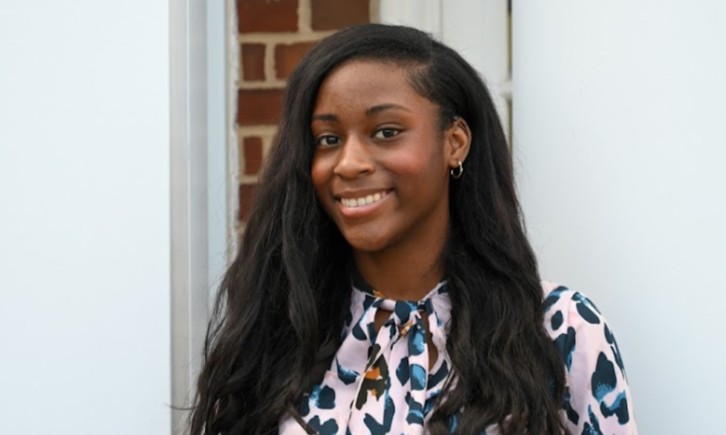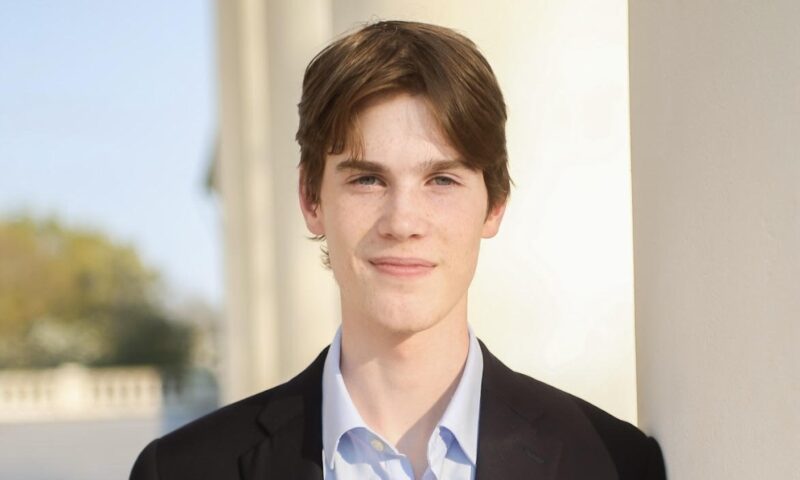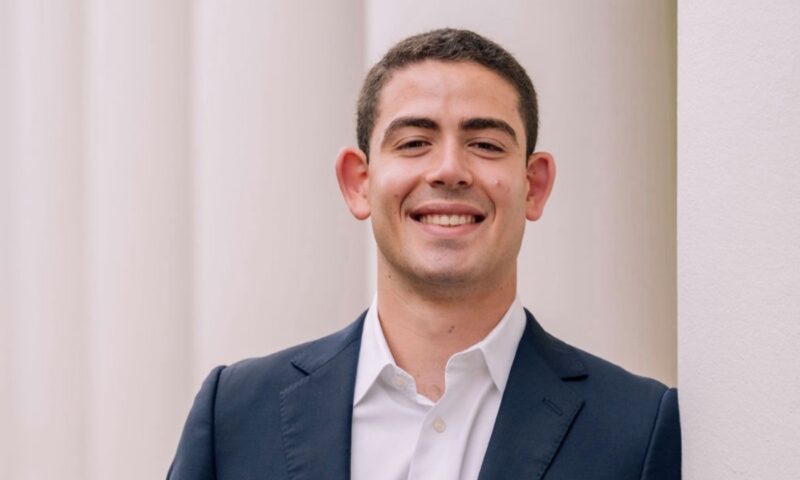Finance and Accounting concentrator Owen Firnstahl is understandably looking forward to his professional life and all that comes with it. The Suffolk, VA, product is ready to apply the skills he developed at McIntire, and indeed, the myriad lessons he learned at UVA, when he begins his role as a Financial Due Diligence Associate in PwC’s Washington, D.C., office this fall.
Outside of his time at Rouss & Robertson Halls, Firnstahl minored in Spanish, volunteered for the Creating Assets, Savings & Hope (CASH) program through Madison House, and interned as a Financial Accounting Intern at The Washington Post. Within the Commerce School, he credits Professor Gary Ballinger, who taught Organizational Behavior in the Integrated Core, with providing one of the most significant and positive impacts on him.
Firnstahl says that though some of his peers put a great deal of pressure on themselves by getting hyper-focused on academic results and career outcomes, he’s had the benefit of many supportive McIntire faculty, “but Professor Ballinger always went out of his way to be a resource for dealing with all of this stress.” He adds that he never felt uncomfortable speaking with Ballinger about any subject: “He made sure to talk to me and all other students as equals. For him, the conversations we had probably didn’t seem that profound, but he helped me figure out a lot of what I want personally and professionally just by taking the time to listen.”
Ballinger says that Firnstahl was a model student with many strengths linked to being well-prepared for the “OB” course; being a skillful negotiator; and, unsurprisingly, having an ability to ask insightful questions on particular roles in a case, strategy, and tactics.
“He was focused on getting it right but also getting a feel for why people do things. Those questions were not just about the class material but how it applied in life settings. It was always great to connect on Zoom during my evening office hours and in-person meetings, and it’s going to be fun following him in all of his success in this role and beyond,” Ballinger says.
We asked Firnstahl about his experiences and how he sees them applying to his next steps and future success, as well as the standout Comm School moment he believes will linger long after he walks the Lawn.
What did you learn about finance and accounting as a Financial Accounting Intern at The Washington Post, and how do you envision that experience helping you at PwC?
One of the coolest parts of working at The Washington Post was seeing how interconnected the accounting department was with every other department—HR, marketing, finance, product development, engineering, etc. I was also able to help prepare reports for the monthly closes throughout the summer and then sit in on the variance analysis meetings with the CFO, who is actually a McIntire grad himself. Doing and seeing all of this really just made me feel so much more comfortable navigating financial statements.
A very important thing that I learned from my internship wasn’t even directly related to finance or accounting. I found very quickly, especially working virtually, how important it was to reach out to my coworkers and bosses and develop both professional and personal relationships. A lot of the cool projects I was able to work on over the summer (such as the Carbon Footprint project and working on the accounting for Arc XP) were due to showing interest and asking to be more involved. That’s definitely a lesson I hope to use at PwC.
What’s one lesson that you’ve learned at the Comm School that has helped you navigate your professional future?
I’ve learned that you should never feel like you’re alone. This idea has been reinforced by the amount of group work we complete in Comm, but it isn’t limited just to that. I’ve never once regretted asking a question or expressing confusion to a classmate, professor, or friend in Comm, and having these support systems—and being a part of them—is huge. And it’s applicable to the real world as well. I am going to make an effort to seek out help when I need it, knowing now that there’s no shame in asking questions.
What memory stands out from your time at McIntire?
My best memories are the times I spent getting to know my ICE groups in the fall and spring. I distinctly remember filming a video advertisement for our fall ICE project and having a great time doing it. Our sponsor was CarMax, and without going into the idea of the ad, I was wearing an inflatable tube-man costume throughout the whole thing. Filming that in public while people confusingly looked at us was hilarious. It was just one of many times we were doing something serious for a project that we’d eventually present to CarMax executives but found a way to make it fun. And I think that’s a really important thing to do just to make work and life more enjoyable.
I’ve made sure to keep up with a lot of my group members and see them out and about in Charlottesville. What will stay with me the most is that the more connected you are with people and the more time you put in to building real relationships, the more impactful and enjoyable your work with them will be.



